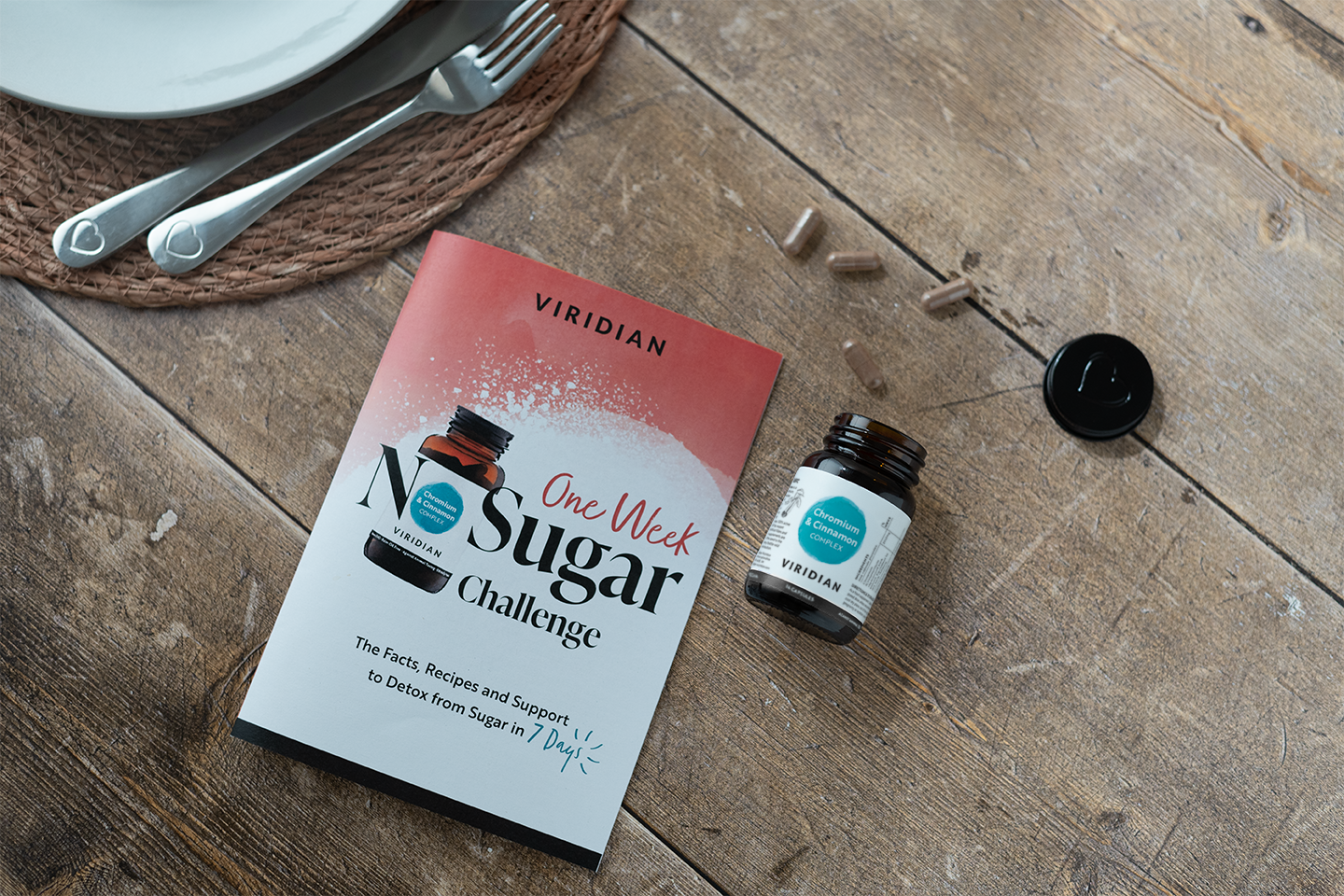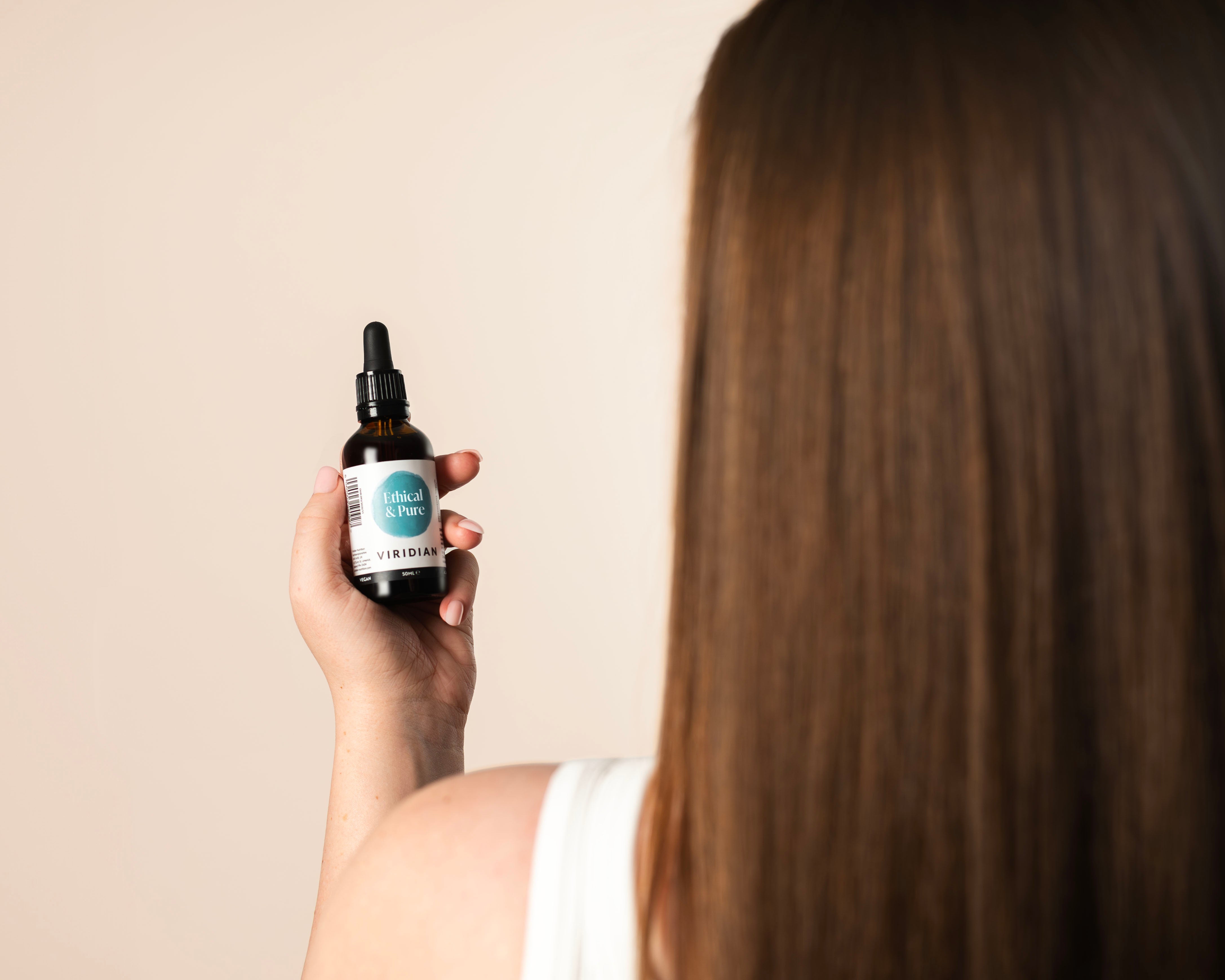An estimated 40% of women aged 16-50 use oral contraception or hormonal contraception. Research suggests oral conception (also known as birth control pills, the pill) is linked to nutrient depletion. Taking supplements may be helpful to fill shortfalls in specific vitamins and minerals. In this article Viridian Medical Herbalist Corin Sadler, explores the role of hormonal contraception, and ways to manage nutrient deficiencies.
Oral contraceptives are a hormonal form of birth control which primarily work by preventing ovulation, stopping the ovaries from releasing an egg and thereby preventing pregnancy. They are also commonly prescribed for those having problems with their menstrual cycle including PMS, heavy periods or endometriosis. It is estimated that around 40% of women aged 16-50 use hormonal contraception, with around 12% in the UK using the combined contraceptive pill.
There are two types of contraceptive pill. The ‘mini pill’ or synthetic progesterone only pill, and the combined contraceptive pill which delivers both synthetic oestrogen and progesterone.
Whilst the contraceptive pill comes with a patient information leaflet which details potential side effects, nutrient depletion is rarely mentioned. Research suggests synthetic oestrogen as found only in the combined pill is linked to depletion of some important nutrients.
How does oestrogen deplete nutrients?
Consuming synthetic oestrogen in contraceptive pills can impact nutrient absorption in the gut, nutrient metabolism once in the body, or increase the excretion of nutrients via the liver, kidneys and gut. All of these mean less availability of the nutrients affected for use by cells across the body and brain.
Either by a single mechanism or a combination of these mechanisms levels of folic acid, vitamins C, E, B2, B6 and B12. and the minerals zinc, selenium and magnesium may be reduced.
Which nutrients are affected and what is the impact?
Folic Acid: Low folic acid levels can lead to fatigue, headaches, and an increased risk of depression. Whilst taken for avoiding pregnancy, many women do not realise that once they stop taking the combined contraceptive pill to try for a baby, if they haven’t been taking folic acid, or increasing folate rich foods they could be deficient in the very nutrient most needed for conception and early pregnancy. Needed for the healthy development of the baby’s brain, skull and spinal cord to help prevent neural tube defects. It is advised both during the planning phase 3 months before conception, and then for the first trimester of pregnancy.
Vitamin B6: Vitamin B6 is an important vitamin for making neurotransmitters including serotonin and GABA, but also plays a role in hormone balance, energy production and immune health. Low levels of vitamin B6 may affect mood, energy levels and have been implicated in PMS symptoms. When stopping the contraceptive pill to plan for pregnancy, it is also good idea to ensure you are not low in vitamin B6, as deficiency has been linked to morning sickness.
Vitamin B12: Vitamin B12 is needed for red blood cells and in the nervous system, whilst vitamin C has multiple roles from collagen production, immune function, hormone and neurotransmitter production.
Magnesium: Synthetic oestrogen increases magnesium uptake into the tissues, potentially leaving lower levels in the blood. Stress also uses up magnesium and many of us do not achieve the recommended intakes to start with either. Magnesium can help manage premenstrual syndrome (PMS) symptoms and muscle cramping, but is also involved in energy production, and in helping manage mood, stress and sleep.
Zinc: This mineral is key in many systems including the immune system, skin, hair and nails. Low zinc levels could be experienced as an increased susceptibility to infection, poor skin health and slow wound healing but also impact on mood and thyroid health as it’s crucial for neurotransmitter and thyroid hormone production.
Vitamin E: This nutrient is used by the body to quench damaging oxidative stress which synthetic oestrogen increases. Vitamin E is a key antioxidant and important for skin and eye health.
Vitamin C: This essential nutrient is needed for many functions in the body from collagen production and immune health to helping quench free radicals which can damage cells and helping iron absorption.
Selenium: This trace mineral is needed in very small amounts but plays a vital role as an antioxidant and in thyroid hormone production, as well as in the immune system in managing inflammation.
How to manage nutrient depletion?
To help prevent these deficiencies impacting your health focus your diet on nutrient dense foods including nuts, seeds, leafy greens, wholegrains, fish and natural dairy products, avoiding ultra-processed foods when possible.
Try topping with the following:
Zinc: Include nuts, seeds and wholegrains regularly and fish, shellfish, and meat if you don’t exclude them.
Folic acid: Add plenty of leafy green vegetables especially spinach and broccoli, asparagus, lentils, chickpeas, butterbeans, and avocado.
Vitamin B6: Try including kidney beans, bananas, avocado, spinach, and poultry or salmon if you don’t exclude them.
Vitamin B12: This nutrient is found in animal sourced products such as poultry, meat, fish, dairy products and eggs. Nutritional yeast and some fermented vegetables may contain a small amount, supplementing with vitamin B12 will ensure a regular intake for Individuals following a vegan diet.
Magnesium: Leafy greens especially chard and spinach are packed with magnesium along with nuts especially Brazil’s, cashew and almonds, whole grains and pulses. Another food source rich in magnesium is mackerel.
Vitamin E: Regularly include a handful of nuts and seeds, but also try sweet potato, avocado, peas, spinach.
Vitamin C: This nutrient is found in abundance in vegetables and fruit but is especially rich in kiwi, strawberries, citrus fruits, peppers, and broccoli.
Selenium: Rich sources include Brazil nuts, shellfish, fish and eggs but wholegrains, sunflower seeds, eggs, poultry and meat also contain some selenium.
Your GP can test for some such as B12 or folic acid, but others are often identified by considering symptoms of deficiency when they present themselves, as mentioned earlier in this article.
Conclusion
The contraceptive pill is often taken for many years but if your diet does not provide the nutrients, you need whilst you are on it, taking a multivitamin to provide a broad array of nutrients may be helpful in supporting optimal nutritional status. You may also want to take extra magnesium.
Starting a family
When coming off the contraceptive pill to plan pregnancy, it is especially important to take folic acid which is recommended preconceptually. In this case, it is best to choose a multivitamin specially formulated for pregnancy to ensure the correct intake of folic acid but otherwise a good high strength multivitamin formulation is advised.
Make sure you choose a supplement with active ingredients and no binders and fillers. For more advice about female health and suitable supplements for you, visit your local independent health store: www.findahealthstore.com
Corin Sadler, BSc, DipION, FDSc is a Medical Herbalist and Senior Nutritionist at ethical vitamin company Viridian Nutrition. She has a Degree in Clinical Herbalism, and a Diploma and Foundation Degree in Nutritional Therapy. Corin has a wealth of clinical experience in natural health and wellbeing, and of using nutrition and herbs to optimise overall wellness.
References
Reproductive health profiles: statistical commentary - GOV.UK
Mohn ES, Kern HJ, Saltzman E, Mitmesser SH, McKay DL. Evidence of Drug-Nutrient Interactions with Chronic Use of Commonly Prescribed Medications: An Update. Pharmaceutics. 2018 Mar 20;10(1):36
Palmery M, Saraceno A, Vaiarelli A, Carlomagno G. Oral contraceptives and changes in nutritional requirements. Eur Rev Med Pharmacol Sci. 2013 Jul;17(13):1804-13.
Sauer AK, Hagmeyer S and Grabrucker AM (2016) Zinc Deficiency. Nutritional Deficiency. InTech. Available at: http://dx.doi.org/10.5772/63203.
Lopresti AL. The Effects of Psychological and Environmental Stress on Micronutrient Concentrations in the Body: A Review of the Evidence. Adv Nutr. 2020 Jan 1;11(1):103-112.
The information contained in this article is not intended to treat, diagnose or replace the advice of a health practitioner. Please consult a qualified health practitioner if you have a pre-existing health condition or are currently taking medication. Food supplements should not be used as a substitute for a varied and balanced diet.







